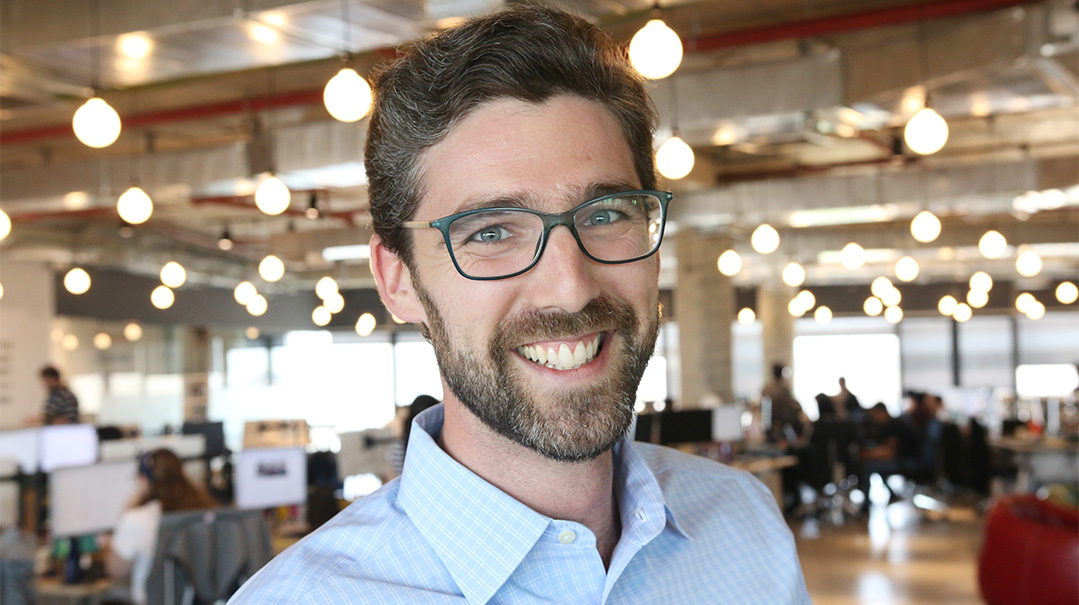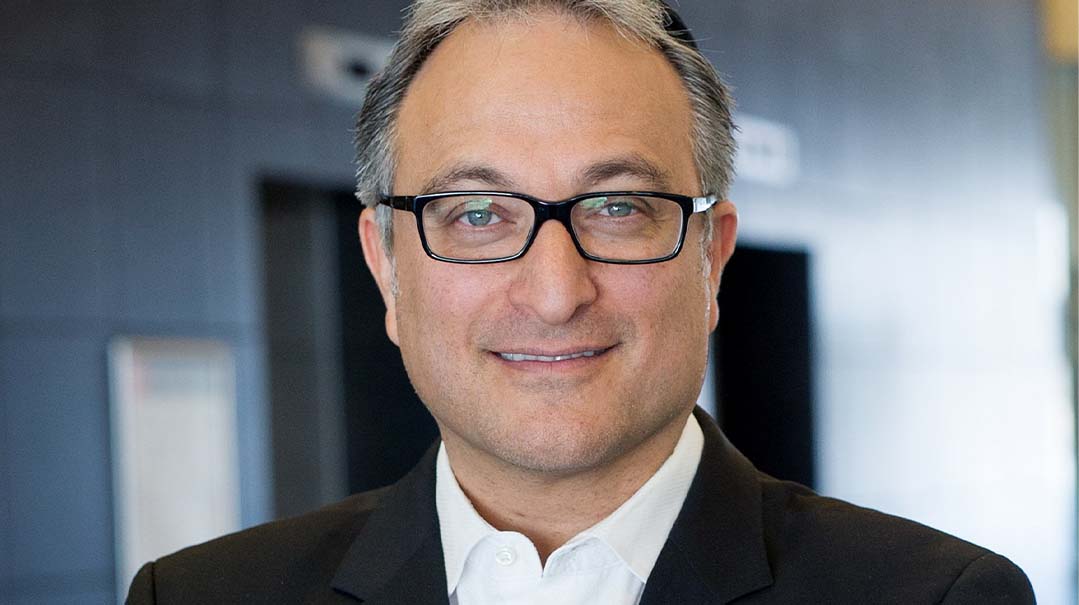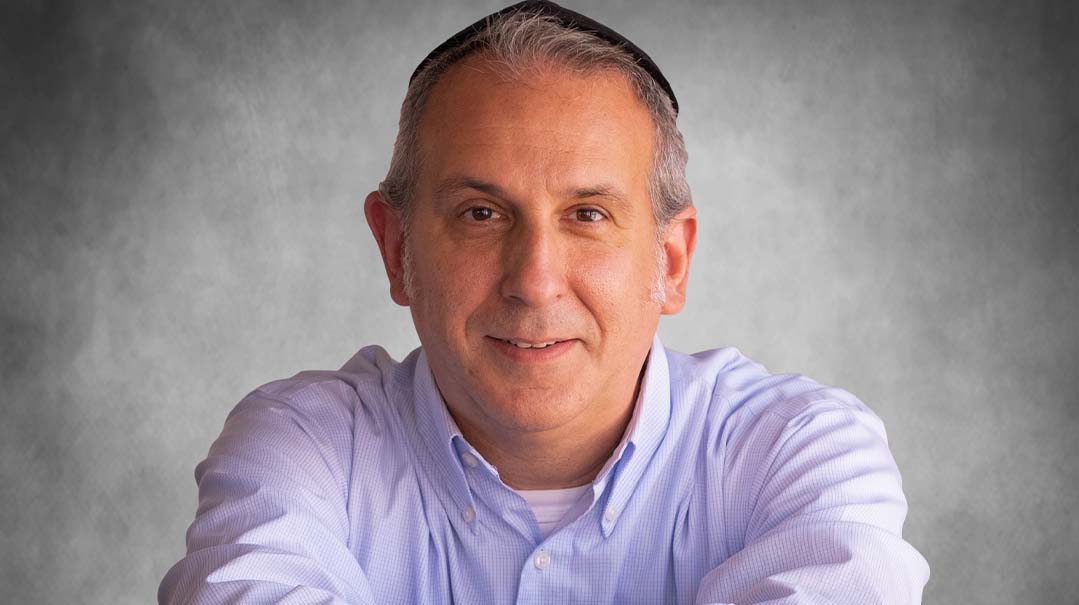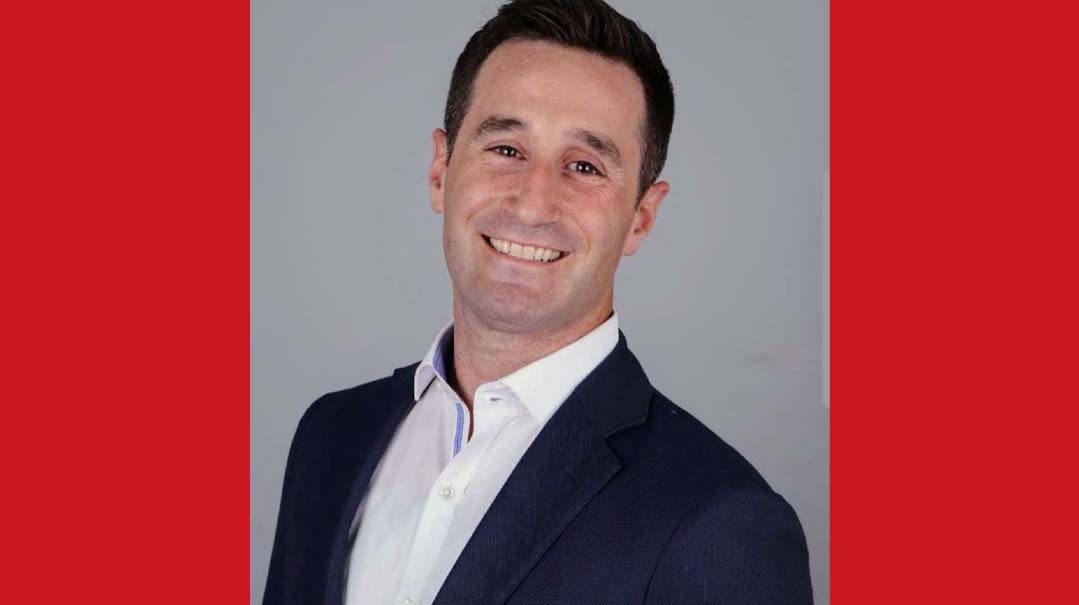Work/Life Solutions with Nadav Reis

" alt="mishpacha image" width="760" height="419" />
Who: Nadav Reis, director of educational partnerships for InVision. (But based on the number of hours that Nadav learns and teaches Torah, I thought he was in kollel full-time!)
What: With a soaring valuation of approximately $2 billion, InVision is one of tech’s hottest startups. They provide a forum for designers to mock up their designs and easily share them with colleagues and clients — no more awkward screenshots or PDFs. They have over 3 million users worldwide, and notable clients include Airbnb, Disney, Nike, Twitter, and IBM.
Where: InVision is also famous for something else — they have zero offices. Their 700-plus employees are distributed throughout the world. Nadav lives in Ramat Beit Shemesh, learns at Kollel Beis Dovid in Har Nof for morning seder, and teaches a semichah chaburah at night — all while working full-time with his remote team.
Why: Nadav embodies the Torah-centered Jew in the business world, juggling hours of learning and teaching every day and making a kiddush Hashem everywhere he goes. An expert at creating lasting partnerships for InVision, Nadav’s integrity, authenticity, and real happiness truly stand out. He doesn’t lead a “double” life; rather, he leads a “broad” life (as Rav Hutner describes) — a goal all of us should strive for, in our own ways.
When: Nadav is from Miami, Florida, and moved to Israel in 2007. After befriending him a few years ago in Ramat Beit Shemesh (and learning that he was not in full-time kollel, like I thought), I began listening to his podcasts, reading his blog, and learning from his incredibly inspiring approach to work-life balance. So, when I put together a list of mentors for this column, he was right up there. And I feel privileged that he agreed to share some insights with all of us.
4 of 9: What would you say was your most resounding failure? What did you take away from that experience?
When I first started building websites, I found a client in the States via a freelance website. He needed a bunch of work done quickly. I completed a number of tasks, and then it turned into a bigger project. In my naiveté, I trusted him when he said he was sending the first check, and I kept working. That check never came, and eventually he disappeared. Scammed!
I was left with over 100 hours of unpaid work. Plus, I had another designer help with some of the smaller tasks, so we lost out there, too.
Yet Mishlei (14:23) tells us, “In every sorrow, there is profit.” This experience taught me a couple important lessons:
People really rely on that check. When you employ someone, you have to come through on your promises.
I need to protect myself and my business by requiring signed contracts and upfront deposits.
Since there are scammers out there, we need to balance the world with people looking out for the best interests of others. That prompted me, together with a friend, to create a web development company to employ others, especially those living in Israel. We hoped to attract small businesses that would outsource work to our talented workforce so families in Israel could earn decent wages. It never developed into what we hoped, but it helped several families for a time.
5 of 9: If you were granted an extra three hours per day, or a spare million dollars, what would you do with it?
That’s easy. A few years ago, I realized that learning an extra five minutes a day adds up to over 30 hours per year. That’s more than three days of two full sedorim. Almost any man I know would love to take off three days to attend a yarchei kallah. People leave work and travel halfway around the world just to sit and learn for a few days. The same can be done in just five minutes a day.
True, there is value in continuity, but we are talking about just five minutes a day. What about ten minutes? Twenty minutes? You want to give me three hours a day? I would gladly take that deal. A million dollars is great but it can’t actually buy you more time, which is our most finite and valuable asset in our very short lives.
7 of 9: If you were asked to deliver a TED Talk, what topic would you choose to speak about?
I heard something recently that really struck me: Although inspiration makes us feel great, on its own it is quite nonsensical.
As someone who enjoys motivational lectures — and even shares some of my own on my website, www.iteratinglife.com — I’d never looked at them this way before. Why is it that, just because someone tells you that you can do it, you suddenly feel like you actually can? That person may never have met you. Maybe you physically can’t do it, even if you want to.
For real inspiration, look no further than your own life experiences, pulling out the lessons and accomplishments that have come from them. When Dovid Hamelech goes to fight Goliath, he doesn’t say that he can defeat such an imposing enemy simply because Hashem loves him and will protect him. Instead he recalls the time a lion and bear attacked his father’s flock of sheep, which he was shepherding (Shmuel I, 17:34-37). As Dovid defended the sheep, the lion attacked him, but he killed the lion. Just as Hashem had saved him then, Dovid was confident that He would save him from the Philistines, too.
Too often we run away from our pasts, forgetting where we came from, what we’ve been through, and what we’ve overcome. Yet these intensely personal events made us who we are today and give us strength to succeed through difficult times in the future.
So you can do it, not because a motivational speaker says you can, but because you know how much you have been through. Do you want that promotion? Do you want to try for a new job or start that company? Scary, I know. But don’t forget — you already have the seeds for success within you.
I heard the above from Rav Reuven Leuchter. It was a powerful message for me, and hopefully someone would find value in such a TED Talk.
8 of 9: How do you navigate the tension between your deepest values and the business world?
There is a moment that sticks out in my mind. For a few months, I was doing contract work on an underground project for InVision to see if it had merit. Things were going well, and Clark Valberg, the amazingly talented and insightful CEO of InVision, asked me to come on board full-time. I was worried that the commitment would affect my learning, which is top priority to me. After thinking it over and knowing that Clark has his heart and mind in the right place, I told him that I trust his judgment and would join the company on one condition: The work could not interfere with my sedorim. Clark understood what that meant to me, so he agreed.
During my first week on the job, there was a meeting that would run right through my night seder each night. I turned to Clark and said, “I had only one condition for working here. How can I break it?”
Clark, with all of his responsibilities at the company, took it upon himself to work it out. In the end, in lieu of the daily meeting, I met weekly one-on-one with my direct manager at a time that fit my schedule.
I have been with the company for years now, and my learning has not been interrupted by work. I get up early and go to bed late, and get all my work done by working around my learning. Since joining the company I have had the great merit to finish several masechtos of Gemara, get semichah, and even train several students who themselves have gone on to pass semichah exams.
9 of 9: What “do’s” and “don’ts” would you share with someone hoping to launch a career as an entrepreneur?
This advice works for young and old, even those who don’t choose a career in entrepreneurship.
There is a reason certain activities bring you more enjoyment and satisfaction than others. Everyone has a gift that Hashem has given them, and He expects you to find it and dive deeply into it.
Each of us must look at the world as if it was created for us, says the Mishnah in Sanhedrin (37a). Some people are very strict on this — cutting to the front of the line or pushing onto buses. Unfortunately, they’re misreading the Mishnah. What it’s really telling you is: The world was created with the means and resources for you to accomplish the individual task that you have been vested with. More than that, the world needs and is waiting for you to realize this and to succeed through your gift. Not only that, you need it, too.
We get caught up in day-to-day life, focusing on trivial details that mean nothing for who we are and why we’re here. You might be great at working with children or the elderly. You might enjoy cooking, and whip up a tastier meal than many people you know. You might be able to solve problems other people don’t even understand. Whatever your gift is, go for it. It is never too late.
So do concentrate on your gift.
Do go for it, even if it is scary or uncertain.
Do believe in yourself.
Don’t worry when others try to dissuade you (and they will, no doubt).
Don’t forget that the whole world was created for you to do this.
(Originally featured in Mishpacha, Issue 726)
Oops! We could not locate your form.







